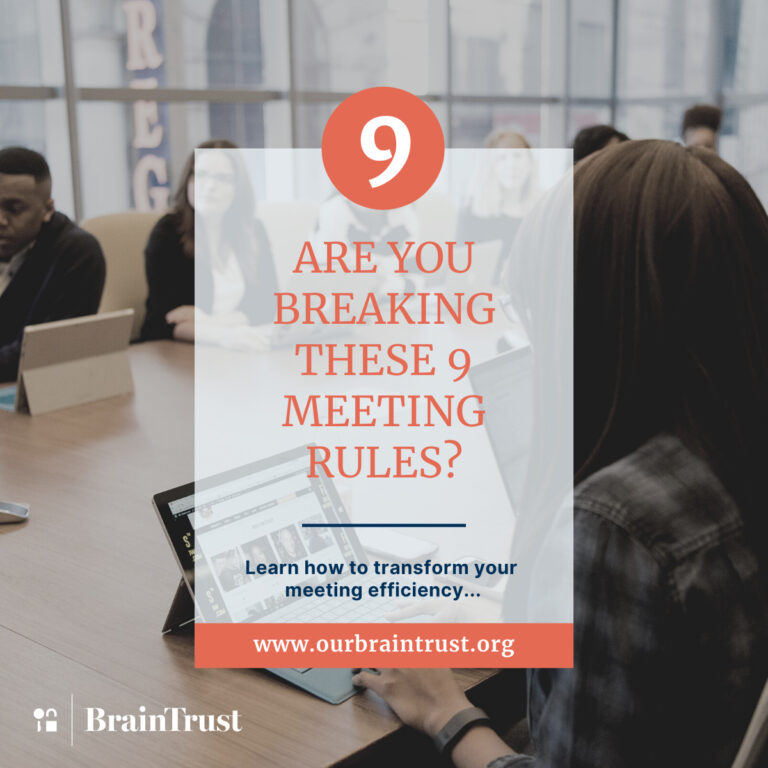HOW DO YOU MAKE THEM FEEL?
WRITTEN BY SHERRY DEUTSCHMANN
“I’VE LEARNED THAT PEOPLE WILL FORGET WHAT YOU SAID, PEOPLE WILL FORGET WHAT YOU DID, BUT PEOPLE WILL NEVER FORGET HOW YOU MADE THEM FEEL.” —MAYA ANGELOU
I’ve thought about those words almost daily since a recent conversation with a friend. Two years ago, her company had been acquired and the transition had been tough. A few months back, she told me that the new owners didn’t seem interested in getting to know her or any of her coworkers. They’d swooped in after their purchase and talked a good game, but on their random visits, they’d breeze in, meet with a few of the senior leaders, and then breeze back out, hardly noticing the “rank and file.” But, during our latest conversation about her work, she was hopeful. Why? Because the company CEO (mind you this man had been the CEO for two years now!) had visited the prior week and he smiled at her. That’s all. A smile. And yet that smile gave her hope. After two years, a single smile gave her hope…hope that she mattered.
Think about your employees. How do you make them feel? When they leave work every day, what is the emotion they carry home with them? Do they feel satisfied – that they were doing work that mattered…no matter how menial the task…or do they feel marginalized, ignored because their job isn’t considered prestigious? Do they leave feeling respected – that they are a valued member of a team that works closely together toward a common goal…or do they feel lost, not knowing how they fit into the company’s plans? As they get dressed for work each morning, are they excitedly thinking about what they’re going to accomplish that day with co-workers they like and respect…or are they filled with dread, knowing it’s another day of backbiting, anxiety, and thankless work?
Here’s an interesting assignment. Google this: “People don’t leave bad jobs; they leave bad bosses.” I think you’ll be amazed at how much has been written about this! You know why? Because most of us have lived it. I did too.
LET ME GIVE YOU A GLIMPSE INTO THAT EXPERIENCE:
I was VP of Sales for a company in the healthcare revenue cycle world. I was a single mom, with only a high school education and no leadership or sales training experience, but I was a good salesperson and had been promoted to a leadership position. I was paid on commission and was making six figures. I was a dedicated, fully engaged employee. Though no one asked me to, on nights and weekends, I came to the office and cleaned the bathrooms. I installed tile in the new IT offices we built out. I pulled weeds and picked up trash from the parking lot. Remember, my job was in sales, not in maintenance or janitorial work.
No matter how hard I worked, how dedicated I was, our company had serious problems. The quality of our service had slipped so much that my role devolved from that of leading sales to “professional apologist.” Really, I spent the majority of my time fielding calls from angry customers. It was a frustrating time and I was intent on solving our problem and getting the company back on track. But when I approached my boss with ideas for improving morale, he dismissively patted my hand and admonished me: “…Sherry, you don’t know anything about business – just go sell another account.”
HOW DO YOU THINK THAT MADE ME FEEL?
I was angry! I felt so disrespected. So marginalized. I couldn’t believe he would treat me this way! He KNEW how dedicated I was. He knew I was doing way more than my assigned role, and yet he made me feel so small, so unimportant. That’s when it hit me! The underlying cause of our customer service problems was simply human error – carelessness. And the individuals who were making those careless mistakes were doing so because, well, they didn’t care. No, they’d already come to grips with what took me months to realize…that the folks at the top didn’t care about us. A bad boss had caused good employees to become disengaged and apathetic.
That epiphany was all I needed. I took my boss’s advice. I went out and sold another account. But this time, it wasn’t for his business – it was for MINE. Yes, because of how he made me feel, I left him and set up a company competing with him and swore to myself that I’d never be the kind of boss he was, that I’d let empathy be my governing leadership trait. I set out to create a company that put the needs of the employees first. My goal was to ensure that every evening, after the workday had ended, we were sending home happier moms, better dads, more appreciative kids – people that create better communities.
Though we did it because it was the right thing to do, putting the needs and feelings of the employees first, it also turned out to be a great business strategy. Citing our culture, even though we were the highest priced solution, the customers kept on choosing us, enabling us to be named an Inc. 5000 company for 10 consecutive years.
NOW, THINK BACK TO THE STORY I WAS SHARING WITH YOU AT THE BEGINNING OF THIS POST.
Simply because of a smile, my friend had new hope that her company might begin to care about her. I hope that every leader reading my words reflects on how that morsel of attention could matter to those reporting to you. I’m not going to discount the value of a smile because it can be (and was!) very powerful. In addition to making eye contact with them, and sharing a smile, here’s list of things you can do to make your employees feel valued, to know that they matter.
- A conversation. Take the time to talk with them, with you doing most of the listening.
- Create regular, formal and informal occasions to listen to them.
- Praise them. Be specific in giving praise. (Not: “you are a great worker,” but more like “I’ve noticed how precise your records are…and that is a tremendous help to us in…).
- Know the names of their significant others and their children. Ask about them.
- Go to them for advice in their area of expertise. And then listen.
- Be honest with them. Deliver bad news in person and directly.
- Be open with them. Our open-book policy let the employees know I trusted them, and that trust was returned in spades.
- Share a meal with them. Yes, the intimacy of “breaking bread” with them lets them know they matter! You can read about my habit of reserving my Wednesday lunch hour with employees in my book Lunch with Lucy.
- Handwritten notes, mailed to their homes, to celebrate their anniversary hire date…or other key milestones.
- Be photographed with them. Selfies daily!
- Work alongside them. When you roll up your sleeves and pitch in to help, they’ll know they matter. When I kicked off my heels, slipped into my running shoes and worked on the production floor during crunch time, the comradery and mutual respect was palpable.
- Invite them to your home. No matter how humble or palatial your home, it is still the “bosses place” and being invited there is special to most employees.
- Brag about them. LetterLogic had a “brag board” in the kitchen, where we’d all place silly little notes with specific praise for a person.
- Invite their family members to company outings and community service projects. When you meet their spouses, tell them how much you value their loved one, and how much you appreciate THEM for their support.
- Baby showers. Wedding showers. Celebrate their personal milestones.
- If you have a night crew, 2nd or 3rd shift, those individuals get left out of many cultural aspects of the company. Being there once a month to serve them breakfast or showing up at midnight with an armload of pizzas will go a long way.
- And, it should go without saying, but pay them fairly! Generously!
How we make employees feel, how we demonstrate their importance to us, really matters. To them, and to us. It mattered to me as I was building a company, and it matters to me now, almost four years after I sold LetterLogic. You see, not a day goes by that I don’t interact with at least one of the former employees. In the last 24 hours alone – six of them have called, emailed or texted me. That leaves me with a pretty good feeling too!








